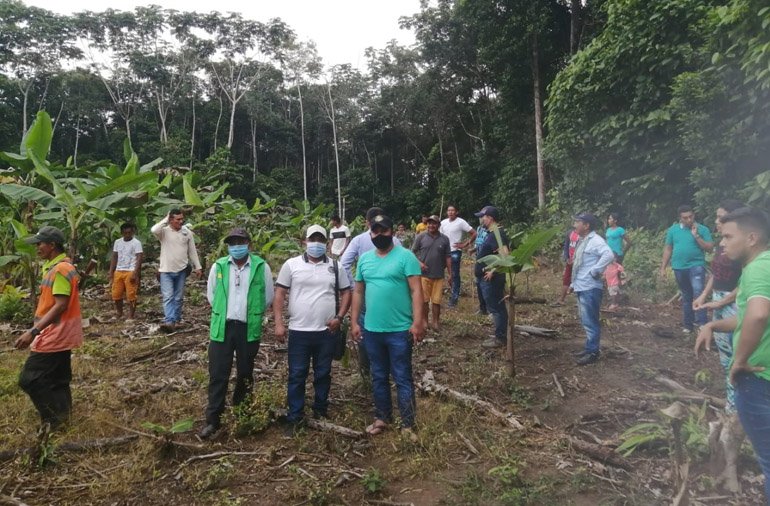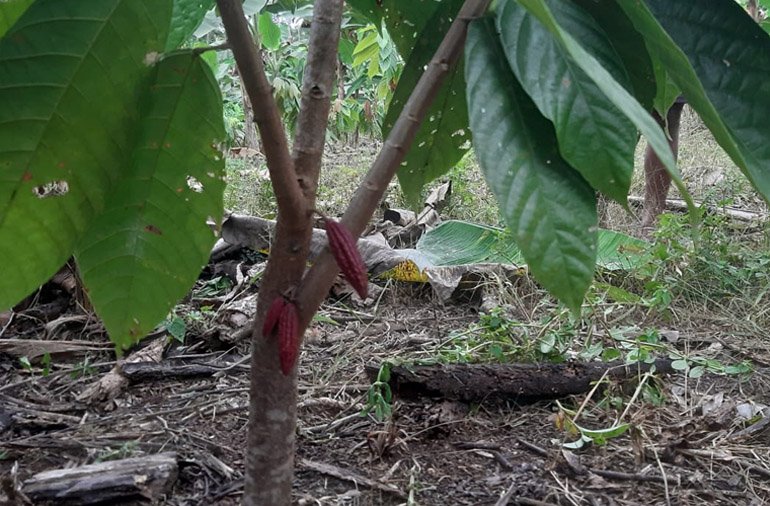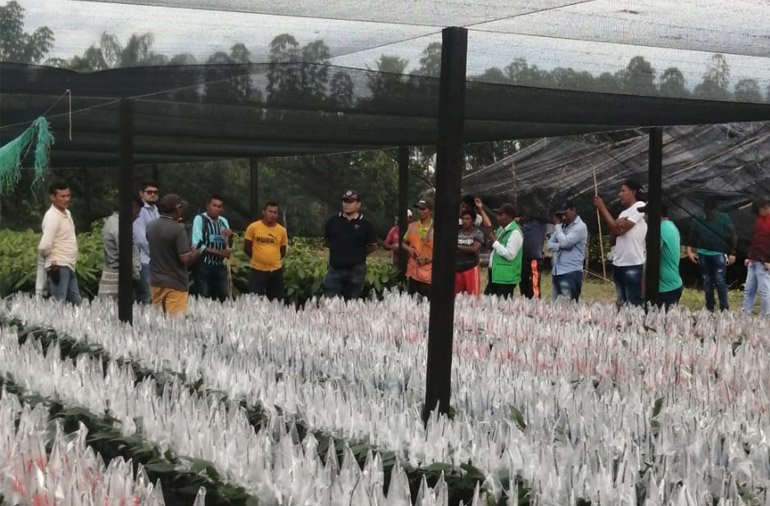100 indigenous families take part of our Agroforestry Productive Project on cocoa, plantain, corn and abarco (a forest native species), each family working in their respective 1-hectare parcel in 10 communities, for a total of 100 hectares. During the first stage of the project, each family received 1,000 cacao plants, 1,000 plantain trees, 3 kg of corn and 45 native trees of abarco. Moreover, they received tools, inputs, technical training on planting and crop management, fertilization and disease control, as well as technical assistance from FEDECACAO (which stands for Colombian National Cocoa Council).
Likewise, we built a 1.000 square-meter nursery with an area for bag-filling and substrate preparation, in order to produce 45,000 cocoa plants every six months for replenishment. Currently, we are on the second stage of the project with the harvest and the establishment of benefit units. A technical team – consisting of 1 agricultural engineer, 3 agricultural technicians and 2 technologists – is carrying out an inventory of vegetal material as well as looking through the phytosanitary and plant production status; besides, they are carrying out activities of phytosanitary control in plants of plantain.
Nowadays, we continue with the delivery of agricultural inputs for fertilizing soils and we are also undertaking assistance activities for fertilizer management as well as weed and pest control. We are also grafting cocoa plants from the nursery with cloned genetic material, in order to improve their quality.
This program makes part of “Activity 6: Productive Projects Development”, through which we design, develop and assess projects in a production chain, to complement Activity 4. Thus, food production is strengthened, sustainable farming practices are promoted (in terms of proper land use), food self-sustainability is guaranteed and it is also possible to create commercial and economic opportunities for indigenous communities.


